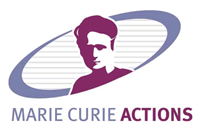HEDG - Health Econometrics and Data Group
The Health, Econometrics and Data Group offers occasional short courses:
Transparency and Reproducibility
Materials available for this course:
Preparation materials
Workshop programme. This document describes the objectives and topics covered in the workshop 1.1 Programme Improving Transparency and Reproducibility in HE_13Sep21 (PDF ![]() , 219kb)
, 219kb)
Participant Manual. This document describes the packages and commands that need to be installed before doing any practical. 1.2 Participant Manual_v1.4 (PDF ![]() , 1,602kb)
, 1,602kb)
What is Transparency and Reproducibility (TR) and how it is applied to Health Economics (HE)?
Overview of TR practices 2.1 OverviewTR_21Sep21 (PDF ![]() , 6,548kb)
, 6,548kb)
TR in the UK. Professor Malcolm Macleod, from the UK Reproducibility Network Steering Committee, introduces the why, what who and how of reproducible practices 2.2 York_MalcomMacleod (PDF ![]() , 4,879kb)
, 4,879kb)
Dynamic Documents
Gina La Hera introduces dynamic documents in Stata 3.1 Stata (PDF ![]() , 1,744kb)
, 1,744kb)
This is an example of a dynamic document in Stata using markdoc 3.2a Markdoc_STATA_v2 (![]() 4kb download)
4kb download)
This is an example of a dynamic document in Stata using putdocx 3.2b putdocx_STATA_v2 (![]() 2kb download)
2kb download)
Gina La Hera introduces dynamic documents in R 3.3 RStudio (PDF ![]() , 2,491kb)
, 2,491kb)
This is an example of a dynamic document in R using markdown and knitr 3.4 Dynamic_documents_R_v2 (![]() 6kb download)
6kb download)
Registration and Pre-Analysis Plans
This presentation explains the importance of registrations and what PAPs are (4.1 RegPAP_23Sep21.pdf HERE) 4.1 RegPAP_23Sep21 (PDF ![]() , 3,050kb)
, 3,050kb)
Version control with Git and the command line
In this presentation, Nerissa Nance explains why version control is relevant for reproducibility and how it could be implemented using git and the command line. (https://rpubs.com/nerissanance/797948 HERE)
Applied research methods for the analysis of health and health care
University of York, 11th - 13th June 2013.
Please download the flyer for further information -
Introduction to Applied Health Economics: 'Methods for the analysis of panel data in health and health care'
University of York, 7th - 9th November 2012.
Please download the flyer for further information - 2012 flyer (PDF ![]() , 33kb)
, 33kb)
Introduction to Applied Health Economics: Methods for the analysis of health care Cost data
The course is aimed at PhD students and junior researchers or policy makers working in applied health economics
The course will run over 3 days from 27th to 29th September 2011.
Please download the flyer for further information - 2011 flyer (PDF ![]() , 33kb)
, 33kb)
An Advanced Course in Applied Health Economics: `Methods for the analysis of duration data'
To be presented by Professor Maarten Lindeboom of the Free University of Amsterdam.
The course will be run over 3 days from 12th to 14th January 2011.
Please download the flyer for further information - 2011 flyer (PDF ![]() , 27kb)
, 27kb)
Introduction to Applied Health Economics: Methods for the analysis of panel data in health and health care.
University of York, 20th - 22nd April 2010
Please download the flyer for further information - 2010 flyer (PDF ![]() , 87kb)
, 87kb)
Methods for the analysis of categorical dependent variables
University of York, January 11-12 2010
Introduction to Applied Health Economics.
Methods for the analysis of health care Utilisation and Expenditure.
A short 3 day computer-based course.
University of York, 21st - 23rd April 2009.
The Marie Curie Training Programme in Applied Health Economics

Given the extensive use of individual level data in health economics, it has become increasingly important to understand the empirical methods available to applied researchers. Moreover, it is just as important to be aware of the limitations and pitfalls associated with each technique.
The aims of the Marie Curie Training Programme in Applied Health Economics were:
- to introduce young professionals to the main techniques used in applied health economics,
- to provide practical experience with the application of such techniques, and
- to instil a code of good practice in the analysis of health data that will permeate the profession.
The programme consisted of three types of event:
- A two-week training course that will impart the basic knowledge required for the practice of applied health economics,
- 3-day “Master Classes” made up of practical workshops on data and software for applied health economics lead by internationally recognised econometricians and health economists, which will coincide with,
- 3-day international conferences, part of the series of European Workshops on Econometrics and Health Economics.
The programme was aimed at PhD students and young European researchers (in the first 10 years of their research career) who were expected to participate in all three types of event.
19th-30th June 2006, York, UK
Training course “Applied health economics” lead by Professor Andrew Jones (York)
3rd-6th September 2006, Thessaloniki, Greece
Masterclass lead by Professors Badi Baltagi (Syracuse) and Pravin Trivedi (Indiana)
6th-9th September 2006
15th European Workshop on Econometrics and Health Economics
2nd-5th September 2007, Bergen, Norway
Masterclass lead by Professor William Greene (NYU)
5th-8th September 2007
16th European Workshop on Econometrics and Health Economics
1st-3rd September 2008, Coimbra, Portugal
Masterclass lead by Professors Maarten Lindeboom (Amsterdam) and John Mullahy (Wisconsin)
3rd-6th September 2008
17th European Workshop on Econometrics and Health Economics
We are grateful for the support of the following sponsors: Arne Ryde Foundation
The Programme received financial support from the European Commission
